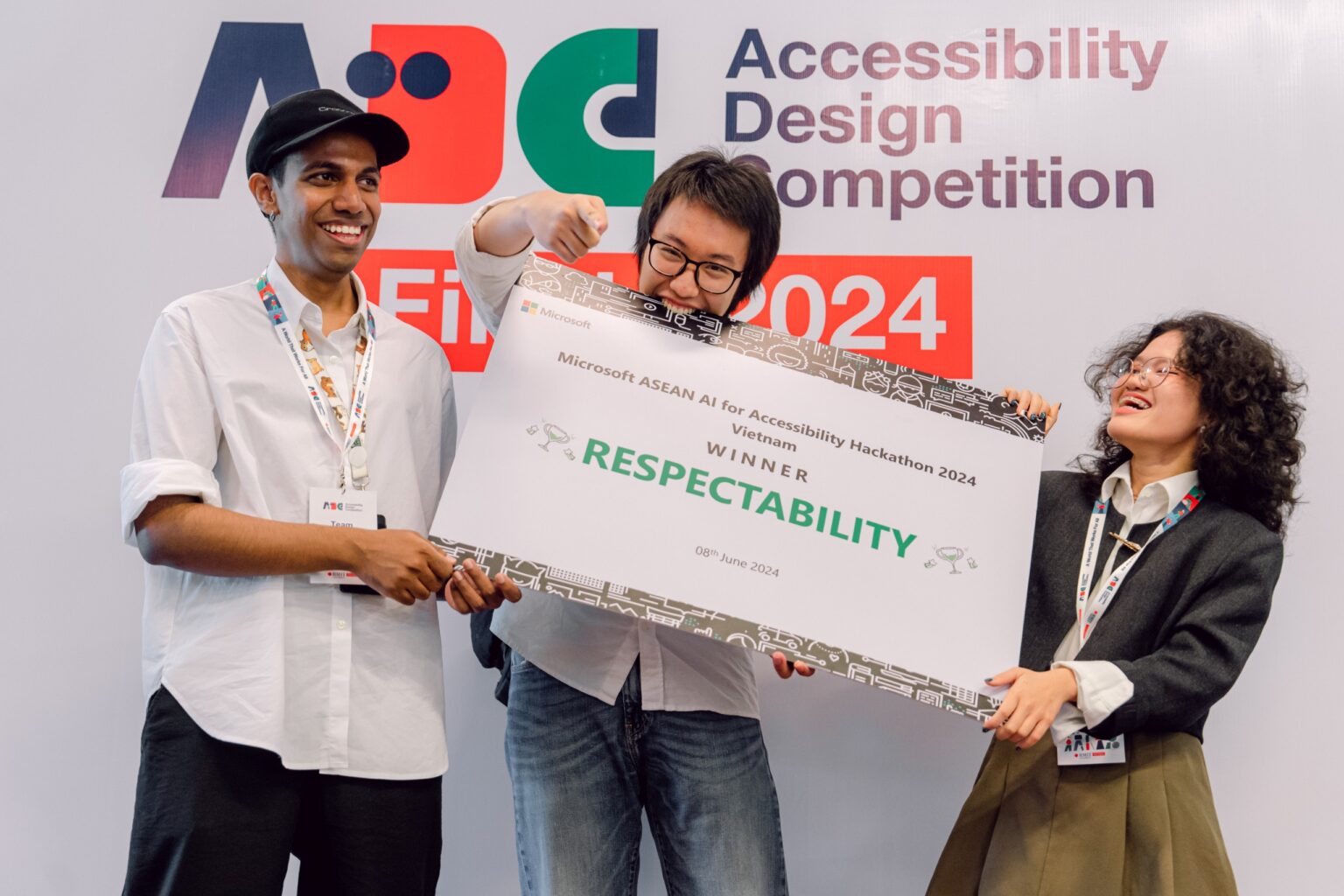The Respectability team has successfully represented Vietnam to become one of the winning teams of the “Microsoft AI for Accessibility Hackathon 2024” in the Southeast Asia region, the world’s largest software maker Microsoft announced early last month.
Microsoft AI for Accessibility Hackathon (AI4A Hackathon) is a competition launched by Microsoft in 2019 to seek initiatives using AI to improve daily life activities for people with disabilities.
This year’s edition of AI4A Hackathon in Southeast Asia attracted more than 650 contestants from 180 teams from more than 20 universities in seven countries.
In Vietnam, Microsoft collaborated with RMIT University Vietnam to organize AI4A Hackathon 2024 as part of the university’s Accessibility Design Competition 2024.
Participating teams with AI-related initiatives that made it to the second round of the Accessibility Design Competition were eligible to participate in the AI4A Hackathon 2024.
The AI4A Hackathon 2024 received 25 entries from Vietnam with a wide range of solutions which contributed to addressing difficulties in daily life for people with speech disorders, stuttering, visual impairment, autism, and physical weakness.
Five teams were shortlisted to enter the final round this year.
After presenting their ideas to a panel of judges from Microsoft, RMIT University, UNDP Vietnam, DRD Vietnam, FPT and HCL Tech, the Respectability team with the solution called SightSence Technology, won the championship of Vietnam’s AI4AH 2024 competition.
SightSence Technology is a solution that uses AI technology to develop glasses with integrated cameras and a sensor cane for the blind that can convert visual data into tactile information through a Braille display.
The Respectability team included three RMIT University students, namely Nguyen Quoc Binh, Nguyen Huynh Nhu, and Saurabh Padmakumar.
Saurabh Padmakumar shared: “Accessibility is not just about convenience, but also about empowering people to fully participate in society. It shows us how technology can make the world more accessible, thereby creating a world that works for everyone.
“Our solution was inspired by what our teammate observed in his blind friend, who had difficulty communicating due to the inability to see facial expressions or body language. Our product uses AI to detect these visual cues and translate them into a custom Braille display, designed to be affordable for everyone.”
According to Nguyen Quynh Tram, country general manager at Microsoft Vietnam, there are more than one billion people with disabilities worldwide, of which Asia has about 650 million people. They are the ones who need assistive technology, but currently only one in 10 people have access to technology to fully participate in daily activities.
“That is why Microsoft has organized the AI4A Hackathon over the past five years with the desire to use technology such as AI to support the disabled around the world, so that they can better integrate into society as well as improve their career opportunities,” Tram said.
Like us on Facebook or follow us on Twitter to get the latest news about Vietnam!


















































